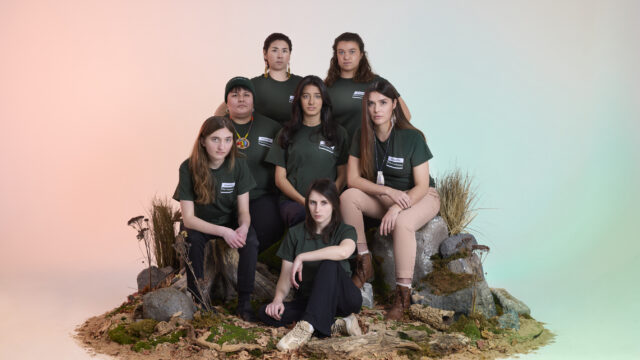This week, a group of older Swiss women won the first ever climate case victory in the European Court of Human Rights (ECHR).
The so-called “Swiss grannies” consist of more than 2,000 women in the KlimaSeniorinnen group, or Swiss Senior Women for Climate Protection. They launched their case nine years ago. When asked about her commitment to the case, Elisabeth Stern, one of the applicants, told BBC News, “Some of us are just made that way. We are not made to sit in a rocking chair and knit.”
And though the women’s suit only affects the law in Switzerland, their win could support similar frameworks to hold other countries accountable for failing to implement sufficient climate policies — thereby violating human rights.
What is the climate case in the European Court of Human Rights?
On April 9, 2024, the ECHR ruled in the case Verein KlimaSeniorinnen Schweiz and Others v. Switzerland. The judgement states that Switzerland is violating the human rights of the older women because the state is not taking the necessary steps to combat global warming.
This is a huge win for climate litigation around the world, as Ecojustice lawyer Fraser Thomson explains on CTV News:
What does this mean for Canada?
“We know that Canada’s climate targets need to be ratcheted up,” says Thomson, who leads our Charter climate case Mathur et. al. v. His Majesty in Right of Ontario. “We know that we need to be doing more, and we know that governments can do more. And so, this court ruling is an affirmation that when governments are not willing to do that it violates our most fundamental rights.”
So, what is the Mathur v Ontario appeal?
When the Ford government weakened its climate target, thereby putting the health of Ontarians at risk, seven young people stepped up. Backed by Ecojustice, Sophia, Zoe, Shaelyn, Alex, Shelby, Madi, and Beze launched their fight in 2019 — a legal battle which continues to this day.
This case has overcome many hurdles, setting legal precedents along the way. It is the first Charter-based climate case to reach a full hearing in Canada.
In January 2024, we headed to the Court of Appeal for Ontario to appeal the dismissal of Mathur et. al. Read more about the file.
What is a climate litigation case?
According to The Grantham Research Institute on Climate Change and the Environment, climate litigation is defined as cases “that involve material issues of climate change science, policy, or law.” [1]
One of the trends identified in its latest report is a rise in government framework cases, also known as systemic climate litigation, of which the “Swiss Grannies” case is one and, of course, our very own Mathur et. al.
But climate change doesn’t take place in a vacuum. Many Ecojustice files which focus on biodiversity or air pollution or water quality would not be classed as “climate litigation” under this definition, but we know that the climate emergency is inextricably linked to other issues. Biodiversity loss, plastics pollution, and the toxics crisis, are all part of the same planetary catastrophie.
Ecojustice takes a similarly multi-faceted approach. We use strategic litigation — as seen in cases like Mathur et. al. — law reform, and public communications to bring about a better world. One in which neither grandmothers nor children need to take their governments to court.
References
[1] Global trends in climate change litigation: 2023 snapshot — Grantham Research Institute on Climate Change and the Environment




